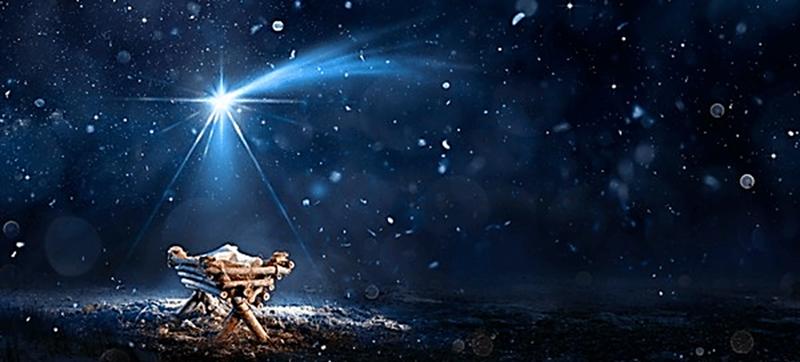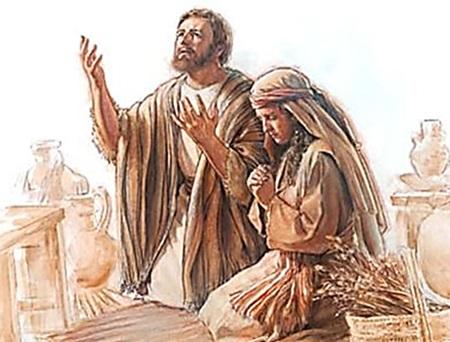Christmas – Glory and Shame
Christmas – Glory and Shame

In the midst of the perennial debate about whether the church ought to set aside a special day to celebrate the birth of our Lord, one finds some interesting statements. It is often remarked that the “early church did not celebrate Christmas” But I recently read an addition to that: “they were too ashamed.”
Unfortunately, as historical research often goes, it is difficult to verify that statement. But it would be quite understandable if this were true.
Christmas, indeed, ought to shame us. It certainly does show the incredible glory of God – who is not only the author of the miracle of salvation, but who comes Himself to rescue us – but that glory is precisely also our shame. God Himself had to come to this earth. None of the angels, though they are mighty beings, could endure carrying the eternal wrath our sins deserve. No creature could have this kind of love – where the One who is first grieved becomes the victim all over again and must love those who are His enemies with a mind-boggling sacrifice.
The Impossible made Possible⤒🔗
The riches of Christmas are first of all a challenge to our own utter poverty. We were in such terrible straits no one less than God in His unfathomable ways of mercy and grace could save us (Isaiah 55:7-9).
The very birth of our Savior attests to this and ought to humble us. He is born without the help of a man, born from a virgin. There is glory there – but also shame.
The miraculous birth of our Lord is a climax in a long history of similar miracles. Earlier there is another birth in the same vein – that of John the Baptist. He is born to parents who had no hope of receiving a child and were “well along in years” (Luke 1:7).
This has to be seen in light of the old covenant, where fertility in land and home was due to the LORD’s favor, while sterility and miscarriage was a divine punishment or chastisement upon sin and disobedience. Such were the contours of the old covenant. It was a concrete demonstration that sin and disobedience bring death and sterility, and mankind is powerless to address these consequences. Those who sin do not have the power to rescue themselves – for sin leads to death in all of its facets. Sin enslaves and its grip is iron.
God breaks through this sterility. He does it in the birth of Samson, one of the shadows of Christ.
You are sterile and childless, but you are going to conceive and have a son.Judges 13:4

Where man has no hope, God brings hope. Where man is powerless God remains powerful. Samson’s entire life is a testimony to the God who is greater than the sin of His people. We see the same thing in the birth of the herald – John the Baptist. The dead end of our sin is no dead end for God.
And we see it par excellence with the birth of our Lord. Now not even a couple is involved. No man makes any contribution at all. It is a sign that God alone is at work with a grace that truly is sovereign. “With God nothing is impossible” the angel said to Mary. We need to see that truth stamped on the entire life of Christ – not only His birth, but also His death. From a human perspective, Jesus may seem to only another failed Jewish rebel, a good teacher who went just a bit too far. But in Him, God came to the aid of those who are at the end of their ropes.
This, however, needs to be our confession. We cannot treat the encouragement that “with God nothing is impossible” by itself, as if it were a nice reassurance and all will be fine. It demands a corollary: the confession that we are in over our heads and that things, indeed, are impossible for us. Not just unlikely, or difficult – but impossible.
Do we see it and confess it?
How Great Our Need←⤒🔗
It is impossible for us to deal with our own sin. They are no mere mistakes that can be rubbed out and replaced (even if we could do otherwise). We have acted treacherously and arrogantly towards the glorious God. It is one thing to swat a fly: another to take the life of a pet; and something far more serious to murder an unborn child. But we have raised our fists against the Most High God! The curse of God, an inescapable punishment, is justly ours. It is impossible for us, on our own, to love God, though there could be no one more worthy of our love. We hate the very lifestyle we are to love, and love the lifestyle we are to hate. It is impossible for us to escape the deceitfulness of sin and the deception of the devil. Perhaps we can fool ourselves with things that are called “the betterment of society.” But no man can change his nature anymore than a leopard can change his spots (Jeremiah 13:23).
It was Martin Luther who said the incarnation consists of two miracles: first, that God became man; the second, that the heart of man should believe this. Not simply because the incarnation is something difficult for our minds, but because it is difficult for our hearts. We are so dead(!) set against the LORD that left to ourselves we would spurn the offer of his grace. We are of the darkness and we hate the light. That is the shame we must confess. Will you confess you need nothing short of a miracle?
God Provides the Impossible←⤒🔗
But there is more! God has provided! The virgin birth declares it so wonderfully! With God nothing is impossible!
It is good to connect Christmas with Good Friday and Easter. We need to do that and fight against the false gospel that sees merely a baby in a manger. Christ was born to die, to die for me. But yet we can still be too simplistic. We can speak of things such as the forgiveness of sins far too easily and far too generally.
The promises of Christ, all of them, from forgiveness to eternal glory, are something miraculous! To see them as anything less than miracles is to fail to see them for what they are.
The test of whether or not you see the child in the manger aright is whether or not you have put your whole weight upon the God who comes to do what no man can do, detesting any righteousness or goodness you might claim in yourself. The very nature of the birth of our Lord is a radical call to consider your own strength and wisdom as rubbish and live out of God’s incomparably mighty power alone. With me, all things are impossible, but with God they are not! – both when it comes to the guilt of sin and the power of sin. It means that as we struggle against sin and as we deal with the sin of others, we daily flee from our own approach, denying our “natural” reactions, and diligently seek the purity, love, and humility that are given in Christ. And we trust that, in Christ, God is already doing what is impossible – making those who were dead alive, alive to righteousness and to Him.

It is the age-old sin of pride. The world has turned Christmas into a lukewarm sentimental festival of good will. It cannot face the challenge of Christ. It will not admit that it needs Him. It will not heed the call of Immanuel, first proclaimed by a young woman in the time of King Ahaz, to turn from reliance upon human strength and to trust in the God who is with us.
It is our danger, too. What keeps us from truly enjoying Christmas? What allows our celebration to turn into some superficial worldly party? Our own pride.
First, see and confess the shame. Weep and mourn. Then there will be joy and glory!

Add new comment